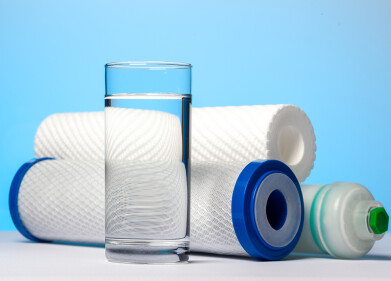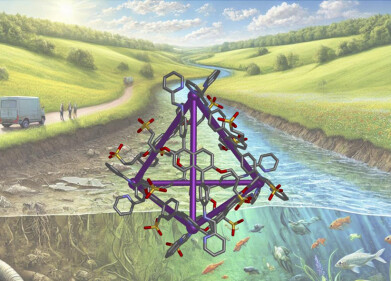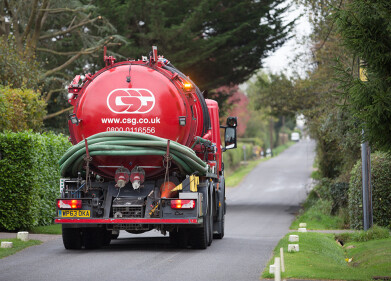Wastewater treatment
Bacteria or Enzymes for Wastewater Treatment?
Oct 31 2017
A West-Midlands restaurant was fined £5,495 in October 2016 because it had caused a blockage in the sewers by continuously pouring fat down the drain, which had a knock-on effect to many near-by businesses. This case represents a growing problem the hospitality, food processing and retail sectors are facing, but it is a problem that can be easily prevented. Here, Steve Martin, projects director for the Wastewater and Biologicals Innovation Platform at global water, energy and maintenance solutions provider NCH Europe, weighs up the benefits of bacteria and enzyme based products in wastewater treatment.
Companies may feel that once wastewater is down their drains, it's no longer their problem. However, as the burden on local authorities caused by mounting blockages and problematic gas build up in our sewers is growing, this is no longer so straightforward.
Industrial companies have always had to hold licences and pay Mogden charges for the disposal of effluent, and they are seeing the associated regulations tighten as local authorities look to businesses to take more responsibility for their own wastewater.
Smaller businesses, on the other hand, do not pay these Mogden charges. Nevertheless they have a moral obligation to ensure they are not contributing to fat-associated blockages. The fined West-Midlands restaurant is a prime example that both small and large-scale premises need to find a longer-term answer to treating their wastewater on-site.
Before explaining the benefits of live bacteria wastewater treatment products, it is important to note that not all products in this field are effective. Many contain dormant bacteria that require many hours before becoming active and getting to work. By the time they’re up and running, the water has already been flushed out of the system in many applications.
By comparison, bacteria products, such as NCH Europe’s FreeFlow Liquid bacteria, are active so they get to work straight away. In addition, products like these have a much higher bacteria count, for example FreeFLow liquid contains 1,000 times more bacteria than the nearest competitor. This means that right from application bacteria are digesting fat, oil and grease very quickly. The sooner in the process bacteria start digesting, and the more efficient they are in doing this, the quicker you will see a return on investment.
There is a lot of misinformation about enzymes products swimming around. Enzymes have a very different effect on fat compared with bacteria, as they simply break up and liquefy the fat, oil and grease in wastewater without actually digesting it. Smaller molecules of fat are created that initially pass down the drain rather nicely, however these smaller molecules eventually congeal back together later down the water system. This passes the problem down the sewer system when the liquid eventually re-solidifies — creating problematic blockages that local authorities have to deal with.
As seen in the media, huge fatbergs accumulate in sewer systems because either no treatment or ineffective treatments, such as enzyme products, have been used. In London, a fatberg the size of a school bus was found in the water systems. This took more than a month to break down and remove, and it reduced the sewer system to 5 per cent of its capacity. Enzymes don't solve the problem; they simply move the problem on to someone else. While they are often seen as a cheaper option they are ultimately ineffective so it's effectively money down the drain.
If organic waste is left to decompose in drains the process produces an unpleasant odour. This can result in complaints from both customers and staff, which – if unresolved – can result in loss of reputation and revenue. Decomposing waste also attracts flies and other vermin leaving businesses vulnerable to breaching health and hygiene regulations.
Some companies use deodorising products or air fresheners to cover up odours, but this will not tackle the problem. Onsite wastewater treatment with a bacteria product like NCH Europe’s FreeFlow will digest the decaying fat and food waste, eliminating the problem completely.
Bacteria may sound like something you would want to keep far away from food production, but products like FreeFlow are non-hazardous, non-GM and food safe. For example, NCH Europe’s wastewater products are National Sanitation Foundation (NSF) approved, meaning they are safe to use in and around food processing areas and comply with hygiene regulations.
Small and large businesses alike need to take responsibility for fat, oil and grease disposal. Your business’s wastewater is not someone else's problem, and with potential fines on the increase it’s becoming more than just a moral obligation to treat wastewater effectively.
Events
Apr 15 2025 Moscow, Russia
Apr 21 2025 Shanghai, China
May 11 2025 Vienna, Austria
May 18 2025 Algiers, Algeria
23rd International Water Management Exhibition
May 20 2025 Prague, Czech Republic
.jpg)













